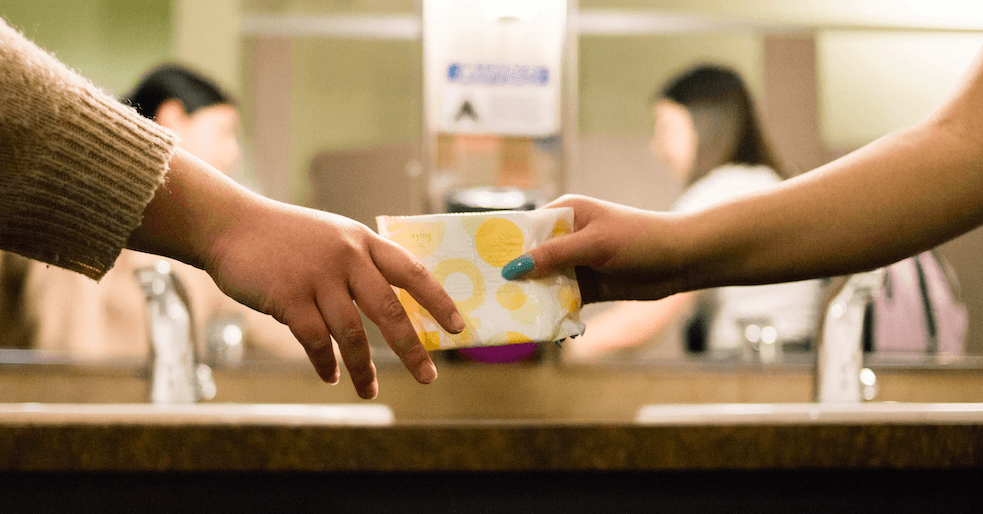Let’s talk about period poverty and the pandemic
Period poverty hasn’t gone away during the pandemic. It is getting worse. Institutions, where people can usually access free period products, like schools, charities and drop-in centres, are closed, and many may feel self-conscious about asking for them in the first place.
There is still such a taboo around discussing periods, meaning that those who can’t afford sanitary products often resort to toilet paper, paper towels or whatever they can get their hands on. Make-shift period products are becoming increasingly common as incomes have plummeted and cheaper brands are flying off the shelves, especially as most shops are banishing promotions. This leaves many forking out more than usual or not buying any sanitary products at all. The initial stockpiling craze did not help, as many bought excessive amounts of sanitary towels and tampons. Shops are often still trying to restock them.
It also demonstrates the need for period products to become free to all
A staggering 3 in 10 people are struggling to obtain period products as many are now on a reduced income and having to determine which essentials are their highest priority, with period products not always included on the list. Thankfully, most charities are still operating and are sending packages to those who are struggling.
The Freedom 4 Girls charity have supplied 4,500 packs of menstruation products since lockdown – an increase from their normal number of 1000 a year, and the Bloody Good Period charity has said that their demand has “at least doubled, if not tripled”. This dramatic increase shows just how much we rely on these closed institutions. It also demonstrates the need for period products to become free to all.
A government spokesman told ITV News that “those on low incomes can benefit from our strengthened welfare safety net, where we’ve given councils an additional £500m to support the most vulnerable in our society.” It seems unlikely that charities would be experiencing such an increased demand for period products if this safety net was enough.
Social media is also a vital platform for encouraging change
Schools can still order period products for anyone to pick up, but there isn’t enough exposure to this. There must be better marketing of this scheme ensure charities are less overcrowded and help as many people as they can. It may feel like there’s not much we can do to help with everything going on in the world right now but there are things that we can all do to try and help those most in need on their dreaded time of the month.
We can make charity donations to companies providing sanitary products to those who need them such as The Body Shop or donate period products to supermarkets and food banks. Social media is also a vital platform for encouraging change. Environmental activist Ella Daish used her online voice to promote #EndPeriodPlastic, and Superdrug is now ditching plastic applicators, saving around 418kg of plastic waste per year. A scheme which has received a great deal of support online works in the same way as a C-Card which provides people free access to condoms. A P-Card would make period products and wider education on menstrual issues free to everybody, not just those in education.
The most important thing we can do is use our voices
Charitable schemes may struggle to go ahead if the economy continues to decline, as the focus for brands, such as Tampax, would presumably be to regain any lost income, rather than give away their products for free. However, many people may be in an even worse position in regard to their income, so there needs to be an empathetic consideration for brands and companies. Helping people in something as necessary as period hygiene should not be a problem for any human being.
Hopefully, the pandemic will result in a more considerate approach for companies, and their charitable gestures will continue. In an ideal world, this could result in a more equal dispersion of income, with the bosses taking a small pay cut to help those who need it most. It will take a lot more than free period products to end period poverty.
When the virus begins to ease, the most important thing we can do is use our voices to raise our beliefs of equality and support for all, and receive more coverage on the phenomenal charities that are doing their bit in this challenging time. No-one should go without something as simple as period products when they need them.

Comments